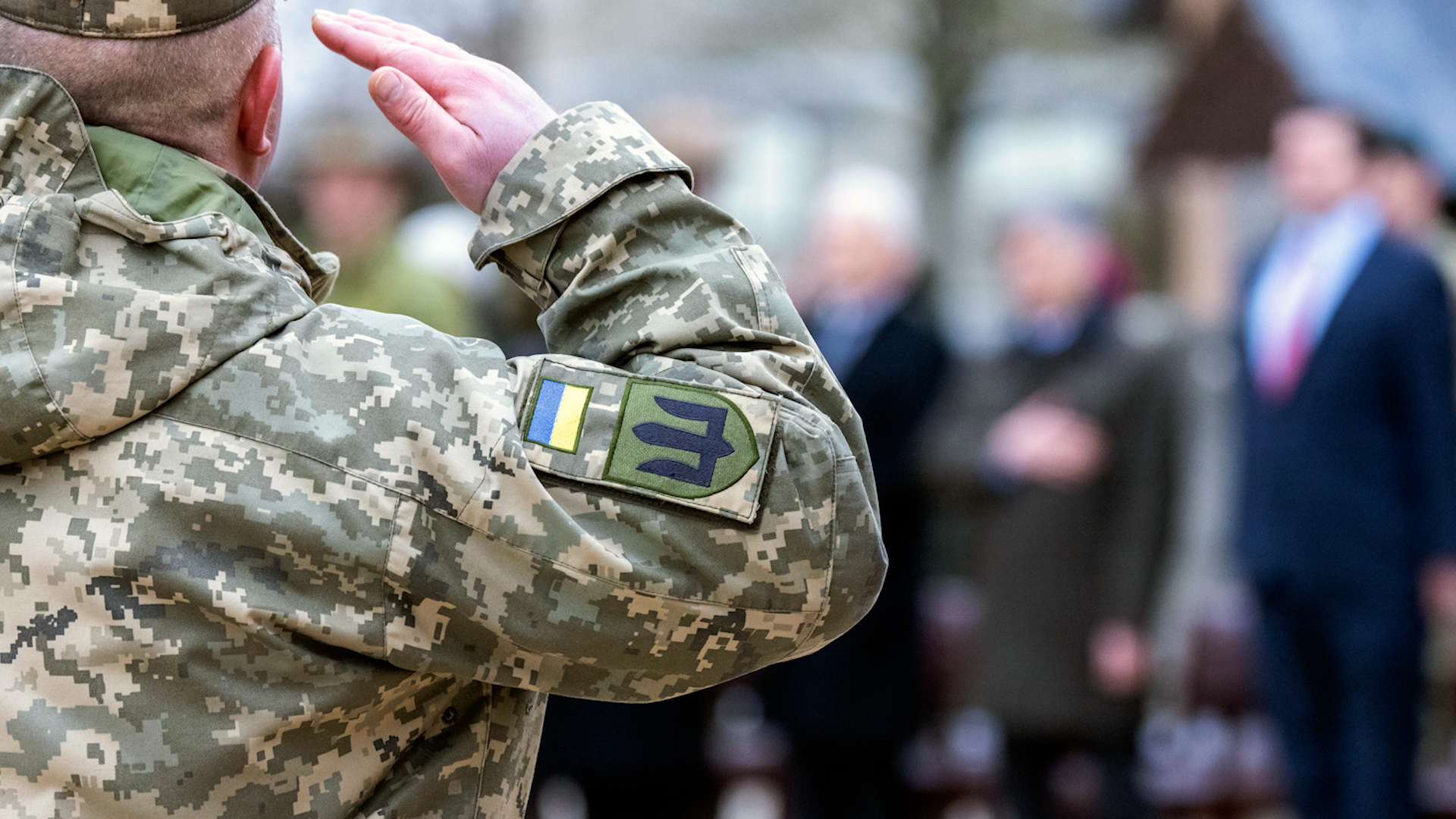
Ukraine promised £92m air defence package, as aid from northern European allies totals £770m

A new £92m air defence package from the International Fund for Ukraine (IFU) was announced at a meeting of Joint Expeditionary Force (JEF) defence ministers – meaning the total pledged from all contributing nations is now £770m, of which £250m is the latest contribution from the UK.
The air defence package equipment will be procured in the coming months to "bolster Ukraine's ability to protect its critical national infrastructure, civilian population, and frontline personnel", according to the Ministry of Defence (MOD).
As part of the package, radars will be provided to "help protect from indiscriminate Russian strikes as well as guns and a significant amount of ammunition".
This latest announcement came as Defence Secretary Ben Wallace attended a meeting of defence ministers from the 10 JEF nations in Amsterdam to discuss continued support for Ukraine and shared security interests and concerns.
A particular focus was on aspects of protecting underwater and offshore infrastructure, with the ministers agreeing in a joint statement to deepen co-operation in this area, including through sharing intelligence.
'Committed to preserving security and stability'
Mr Wallace said: "The Joint Expeditionary Force brings together like-minded nations committed to preserving security and stability in Northern Europe and providing ongoing support for Ukraine.
"The UK has contributed a further £250m to the International Fund for Ukraine and, with allies and partners, through the fund we are providing a package of air defence to help Ukraine protect their critical national infrastructure and defend against indiscriminate Russian air strikes."
The IFU uses financial contributions from international partners to procure priority military assistance for Ukraine, which will look to ensure a continued supply of military support – lethal and non-lethal – to Ukraine through 2023 and beyond.
According to the MOD, more than £520m has been raised through the IFU following contributions from the UK, Norway, Netherlands, Denmark, Sweden, Iceland and Lithuania.
The latest UK contribution of £250m comes after Prime Minister Rishi Sunak met Ukrainian President Zelensky in Moldova earlier this month to discuss how best to protect Ukrainian cities and critical national infrastructure from Russian strikes.
President Zelensky on Twitter, thanked the "allies from the Joint Expeditionary Force for a powerful assistance package" to strengthen Ukraine's air defence.
The funding for air defence is the first of five expected support packages as part of the second round of IFU procurement.
Protecting underwater cables
During his visit to Amsterdam, Defence Secretary Ben Wallace also held a bilateral meeting with his Dutch counterpart, where they discussed further support for Ukraine.
The JEF nations – Denmark, Estonia, Finland, Iceland, Latvia, Lithuania, Netherlands, Norway, Sweden, and the UK – agreed to step up efforts to protect underwater cables and pipelines from Russian threats in the wake of last year's attacks on the Nord Stream gas network.
Mr Wallace has previously warned that Russia has "the intent and the ability" to target the West's underwater energy and communication lines.
In a joint statement, the JEF defence ministers said: "Today we face common challenges including Russian vessels mapping critical undersea and offshore infrastructure, indicating preparations for possible disruption and, at worst, sabotage.
"We have today decided to accelerate co-operation in the JEF in order to detect, deter and respond to threats against our critical undersea and offshore infrastructure, reassure allies and demonstrate collective commitment to the security and stability of Northern Europe; all in full alignment with Nato."
The JEF members will increasingly share intelligence and surveillance information on possible maritime threats.
They also agreed to "co-ordinate presence and will pool and share capabilities to deter and respond to threats".
The ministers reaffirmed their "steadfast commitment to support the people of Ukraine" in the face of Russia's invasion, which started in February 2022.









